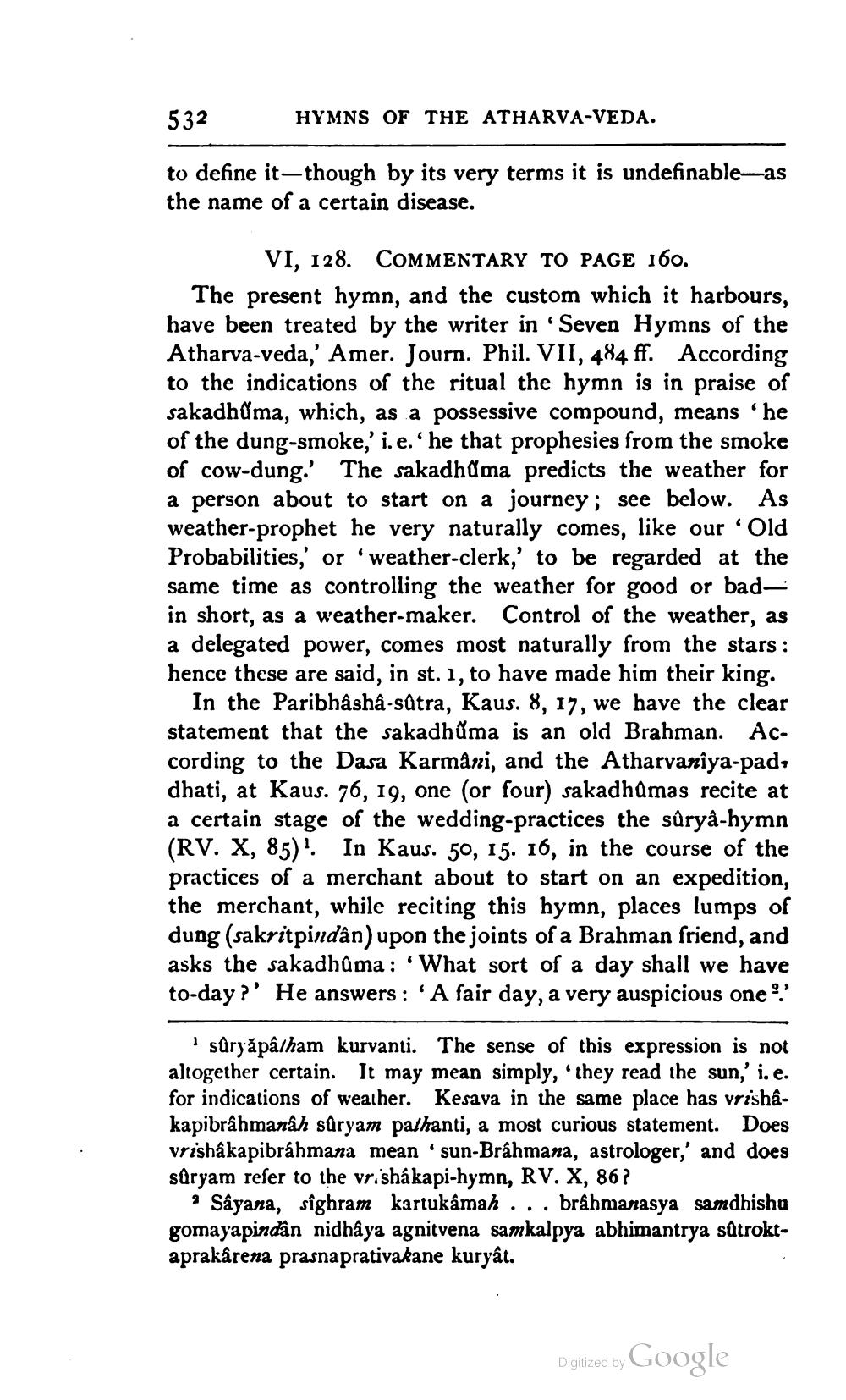________________
532
HYMNS OF THE ATHARVA-VEDA.
to define it—though by its very terms it is undefinable-as the name of a certain disease.
VI, 128. COMMENTARY TO PAGE 160. The present hymn, and the custom which it harbours, have been treated by the writer in Seven Hymns of the Atharva-veda,' Amer. Journ. Phil. VII, 484 ff. According to the indications of the ritual the hymn is in praise of sakadhūma, which, as a possessive compound, means 'he of the dung-smoke,' i.e.' he that prophesies from the smoke of cow-dung. The sakadhama predicts the weather for a person about to start on a journey ; see below. As weather-prophet he very naturally comes, like our 'Old Probabilities,' or 'weather-clerk,' to be regarded at the same time as controlling the weather for good or bad — in short, as a weather-maker. Control of the weather, as a delegated power, comes most naturally from the stars : hence these are said, in st. 1, to have made him their king.
In the Paribhasha-sâtra, Kaus. 8, 17, we have the clear statement that the sakadhẩma is an old Brahman. According to the Dasa Karmani, and the Atharvanîya-pad, dhati, at Kaus. 76, 19, one (or four) sakadhamas recite at a certain stage of the wedding-practices the sûryâ-hymn (RV. X, 85)' In Kaus. 50, 15. 16, in the course of the practices of a merchant about to start on an expedition, the merchant, while reciting this hymn, places lumps of dung (sakritpindân) upon the joints of a Brahman friend, and asks the sakadhûma: 'What sort of a day shall we have to-day?' He answers: 'A fair day, a very auspicious one?'
sûryăpâtham kurvanti. The sense of this expression is not altogether certain. It may mean simply, they read the sun,' i.e. for indications of weather. Kesava in the same place has vrishakapibrâhmanâh sûryam pathanti, a most curious statement. Does vrishâkapibráhmana mean 'sun-Brahmana, astrologer,' and does süryam reser to the vrishákapi-hymn, RV. X, 867
• Sâyana, sîghram kartukamah ... brahmanasya samdhisha gomayapindân nidhâya agnitvena samkalpya abhimantrya sütrokt. aprakârena prasnaprativakane kuryât.
Digitized by Google




